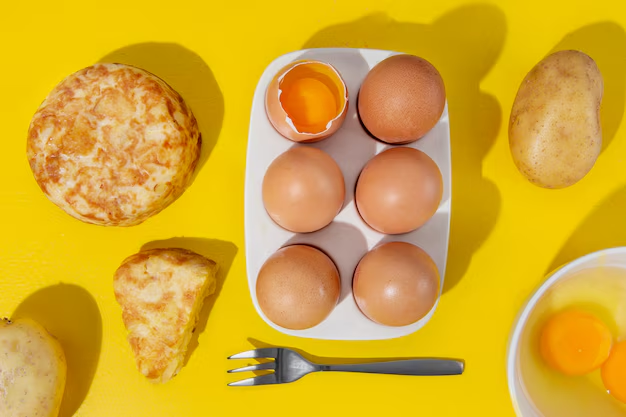How Long Can You Really Keep Store-Bought Eggs in the Refrigerator?
Eggs are a staple in many households, appreciated not only for their versatility in recipes but also for their excellent nutritional value. Yet, as with any fresh food, understanding how to store them properly can mean the difference between a delicious meal and a potential health hazard. So, how long do store-bought eggs last in the refrigerator? Let's crack open this topic and uncover all you need to know.
🥚 The Lifespan of Store-Bought Eggs
Understanding Expiration Dates vs. Julian Dates
The first step to knowing how long eggs last is understanding the labels on the carton. Store-bought eggs typically come with either an expiration date or a "sell by" date. However, a less-known label known as the Julian date can be more informative. The Julian date, often a three-digit number, represents the day of the year the eggs were packed. Recognizing this system can help you make an informed decision about the eggs' freshness.
How Long Can Eggs Really Last?
Raw eggs in the shell: When properly refrigerated, these eggs can remain safe to consume for three to five weeks beyond the Julian date.
Raw eggs out of the shell: After cracking, it's best to use them within two to four days to ensure safety and quality. This applies to both whites and yolks if stored separately.
Cooked eggs and dishes: These should be consumed within three to four days for optimal freshness and taste.
The Science Behind Egg Freshness
What Affects Egg Longevity?
Several factors determine how long store-bought eggs will remain safe and delicious:
- Temperature: Eggs should be stored consistently at or below 40°F (4°C). Fluctuations in temperature can cause deterioration.
- Shell condition: Eggs with cracked shells are more susceptible to contamination.
- Packaging: Cartons help prevent moisture loss and protect eggs from absorbing the odors of other foods.
Why Refrigeration Matters
Refrigeration slows the growth of bacteria, which can cause spoilage and foodborne illnesses. Keeping eggs cold helps maintain their integrity and prevents the growth of Salmonella.
🧊 Best Practices for Storing Eggs
Where in the Fridge?
Though many refrigerators have egg compartments in the door, storing eggs on an internal shelf is recommended. The fridge door is subject to frequent temperature changes due to opening and closing, which can compromise the eggs' quality.
Proper Handling Techniques
- Leave eggs in their carton: This packaging helps reduce the risk of odor absorption and moisture loss.
- Check for cracks: Always inspect eggs before purchase and again before storage.
- Use "first in, first out": Consume older eggs first for maximum safety and freshness.
🕵️♀️ How to Test for Freshness
The Float Test
This popular method can help determine an egg's freshness:
- Fill a bowl with water and gently place the egg inside.
- If the egg sinks and lays flat on its side, it's very fresh.
- If it stands upright or tilts, it's older but still safe.
- If it floats, it’s past its prime and should be discarded.
Sniff Test and Inspection
Crack the egg into a clear bowl before using it. A fresh egg will not have a strong odor; any off odors or unusual colors suggest spoilage.
Safety Concerns and Common Myths
Are All Eggs Susceptible to Salmonella?
While not all eggs are contaminated, any egg has the potential to harbor Salmonella. Proper storage and handling reduce the risk significantly.
Brown vs. White Eggs
Color doesn’t affect shelf life or quality—it’s merely a result of the hen’s breed. Both can last equally long if stored properly.
🌟 Quick Takeaways for Egg Storage
Here's a handy summary for keeping your eggs at their best:
- 🥶 Refrigeration is key: Keep eggs at or below 40°F (4°C).
- 💧 Store in the carton: Prevents odor absorption and moisture loss.
- 📅 Pay attention to dates: Use the Julian date to monitor freshness.
- 🚫 Avoid cracked eggs: More prone to contamination.
- 🤓 Test for freshness: Use water bowl and sniff test to ensure quality.
Creative Uses for Older Eggs
When eggs are approaching their shelf life, there are still plenty of ways to use them safely!
Baking and Cooking
- Older eggs are ideal for baking, where the freshness isn’t crucial to the outcome.
- Hard-boiling is another great option; slightly older eggs peel more easily than fresher ones.
Decorative and Craft Uses
- Use hollowed-out eggs for Easter crafts or other decorations, ensuring the contents are discarded safely.
Keep It Fresh: Final Thoughts on Egg Storage
Eggs are a powerhouse of nutrition and versatility, but keeping them fresh and safe is essential. Knowing how to properly store and monitor the freshness of your eggs will not only ensure delicious meals but also protect your health. By following these practices, you can confidently enjoy eggs long past their Julian date while reducing waste and maximizing the investment you make in your groceries. Remember, when it comes to eggs, freshness meets function with simple, thoughtful storage and usage practices.

